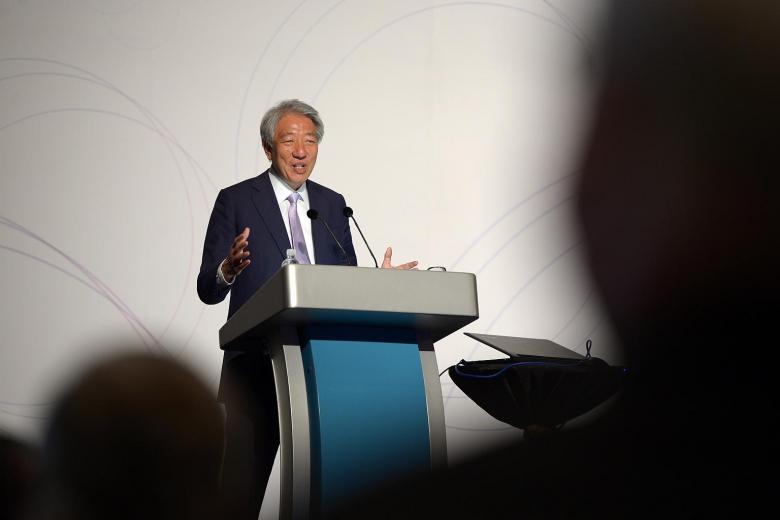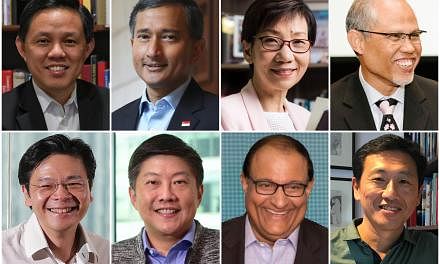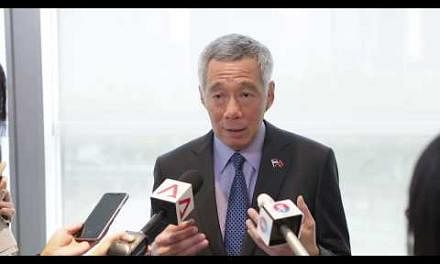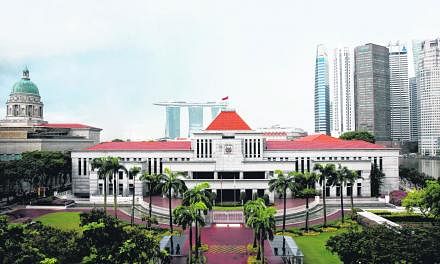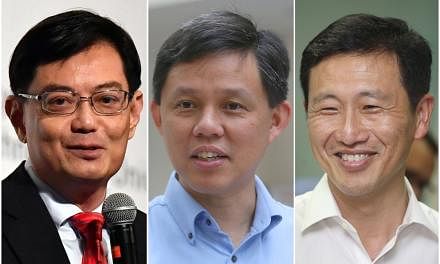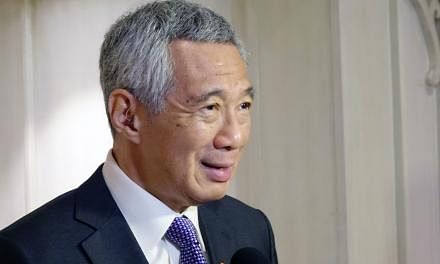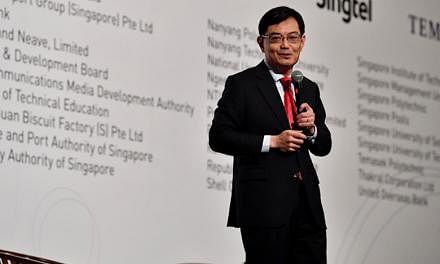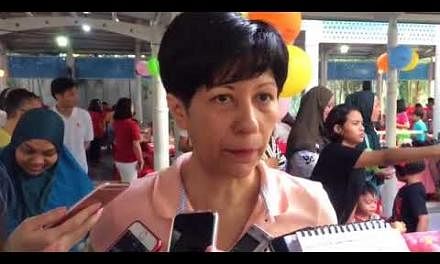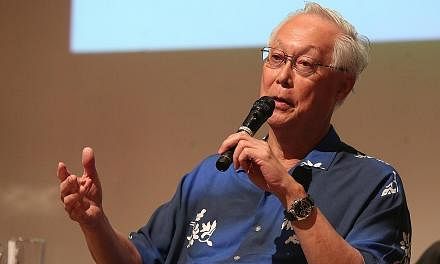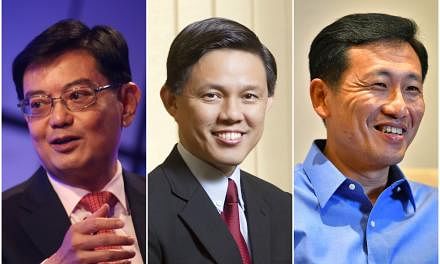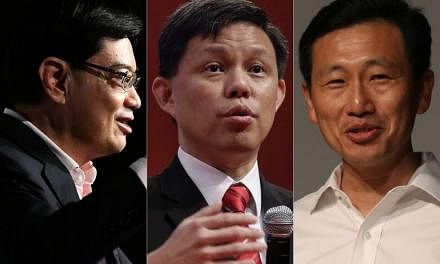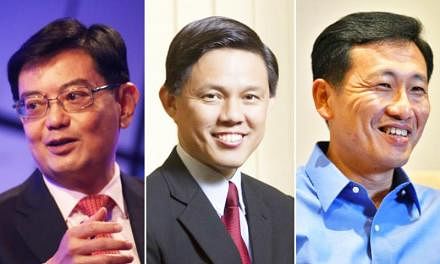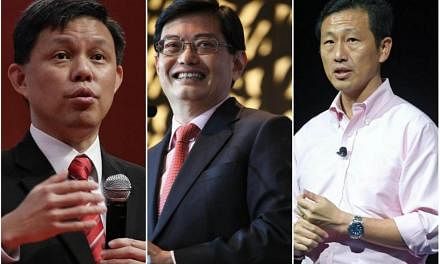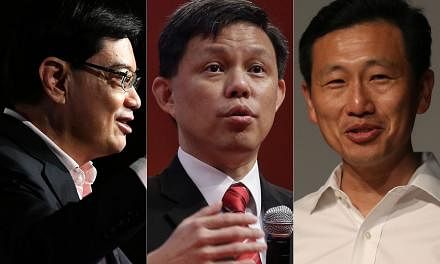SINGAPORE - There is a certain vitality and energy needed to lead a country, and the leadership of the country must not become aged, said Deputy Prime Minister Teo Chee Hean on Monday (Jan 22).
"You don't want a whole nation to be held hostage by the health of a cohort of people who are already senior and are getting more and more senior with each passing year, so you need leadership renewal," he added at the Singapore Perspectives 2018 conference organised by the Institute of Policy Studies.
But he said he hoped the younger generation of ministers would see the benefits of having some "more senior" members in the Cabinet to ensure continuity.
He was responding to a member of the audience, who wanted to know if there could be a larger representation of older people in Cabinet and the Civil Service so that there are more policymakers who can represent the point of view of older people in Singapore as the country ages.
Mr Teo, who is also Minister-in-charge of the civil service, acknowledged that it would be useful to have some "more senior" members in Cabinet to ensure continuity.
In fact, he said, this is one of the unique features of Singapore's political system, and former prime ministers have remained in Cabinet as senior ministers and minister mentor after stepping down.
This was beneficial and a "great help" for younger members of the Cabinet in the past, he said of his own experience.
He hopes the younger leadership would also see the usefulness and benefits of such an arrangement.
Mr Teo said he has asked the Civil Service to look at older people when recruiting, since they make up the fastest growing sector of workers.
Redesigning jobs can help seniors continue to work and build up their retirement nest egg, he noted. This could involve sharing a job between a senior and a young parent who prefers not to work at full tilt because they have young children, so that both benefit.
Mr Teo said technology can also be tapped to redesign jobs, to make work arrangements more flexible and allow seniors to take part in the gig economy as well.
A concerted effort by individuals and families, communities and workplaces is needed for seniors to remain in the workforce for as long as they are able and willing to do so, he told more than 1,000 people, including policymakers, students and people from civil society at Raffles City Convention Centre.
Citing a 71-year-old resident, Mr Quek Keng Hock, who showed him a yoga headstand after a feedback session in Pasir Ris, Mr Teo said society needs "to stand the way we think about ageing on its head".
Seniors too, must be willing to learn new skills and stay active. "Living longer does not mean being old for longer. It means staying young for longer," he said.
On the positive side, he noted that Singapore had already seen the signs of the ageing population since the mid-1980s, as life expectancy was increasing and the baby boomers had been born.
Thus policy enhancements like CPF Life and MediShield Life have been rolled out in recent years, to help Singaporeans cope better financially in their old age, he said.
But with healthcare costs rising, the topic of how much younger people can or should support older people is being debated.
Just as how young people on bicycles and e-scooters and older pedestrians have to navigate the shared pavements, so there could be some "contestation" over the allocation of resources to the development of the young and to older citizens, said Ambassador-at-Large Chan Heng Chee during a separate panel discussion.
As the population ages, health costs will be hefty, and there will be unhappiness if taxes continue to rise, she said.
"Will this result in younger Singaporeans demanding a reduction in older citizens benefits? I'm sure there is a tipping point," she said. She noted that "we are not there yet".
A Raffles Girls' School student also pointed to this potential conflict, when she asked if using technology in workplaces to help seniors would artificially skew the job market in their favour.
Prof Chan, who is chairman of the Lee Kuan Yew Centre for Innovative Cities at the Singapore University of Technology and Design, replied that enabling technology does not help those who are unable to work, but it can make up for strength or other qualities that people lose when they age.
In fact, a lot of money is spent on the young, through schools, good facilities and overseas exchanges, she said.
For solidarity and harmony, older people could show they are willing to take a lower pay package so that some of that pay can create new jobs, she added.
Fellow panellist Laurence Lien, who is chairman of the Lien Foundation, highlighted how it is key to engage older people instead of seeing them as a liability, as society ages.
In fact, the age of 65 may no longer be relevant as a benchmark, he said.
For example, in 1999, the labour force participation rate for residents aged 65 and above was 12.4 per cent, while in 2014 the rate for those aged 70 and above was 15.3 per cent.
Also, in 1999 there were 10.8 older people per 100 people aged 20 to 64, while in 2014 there were 9.9 older people per 100 people aged 20 to 70, he said.
He suggested changing work structures so that younger people and older people work side by side with one another, building on each other's strengths.
